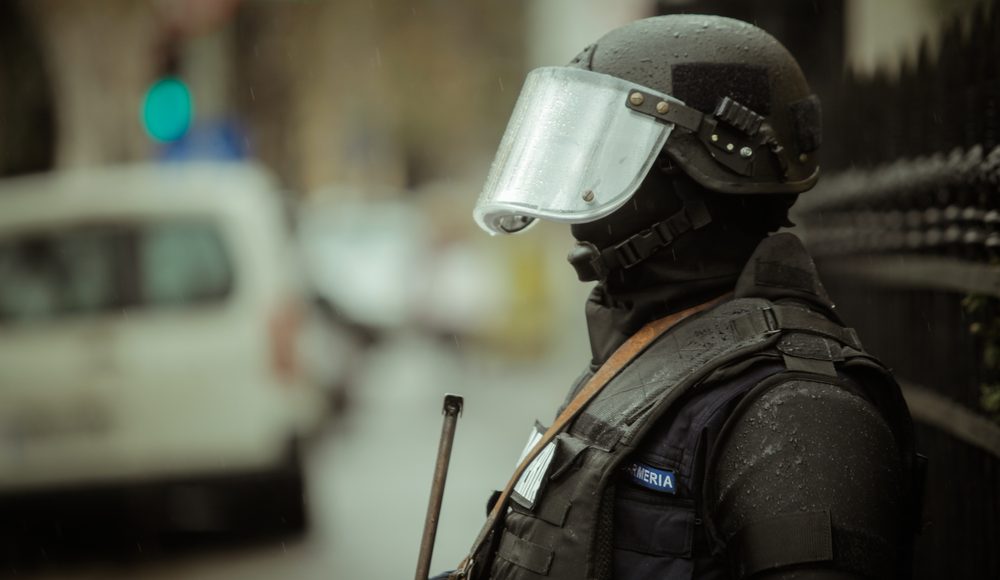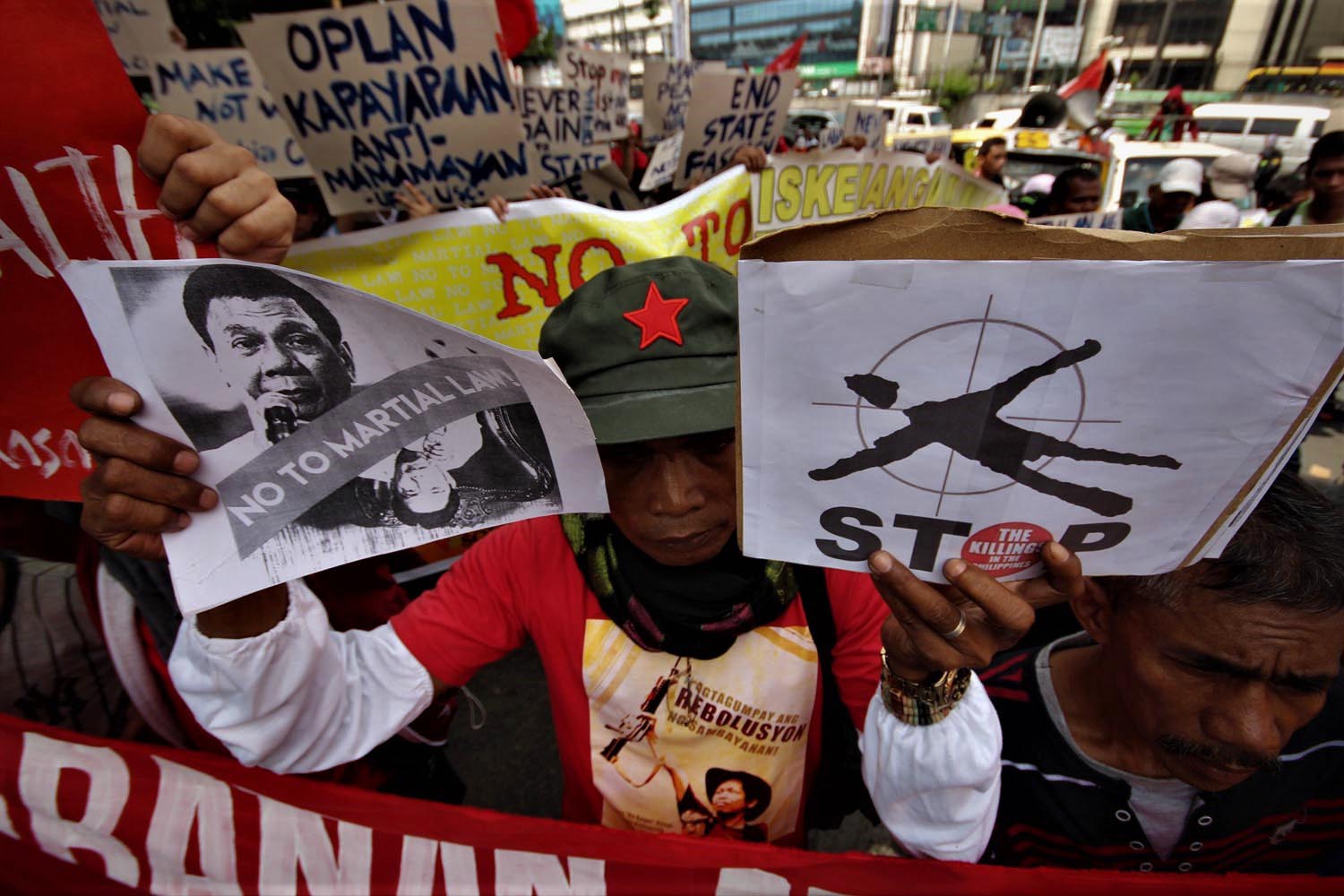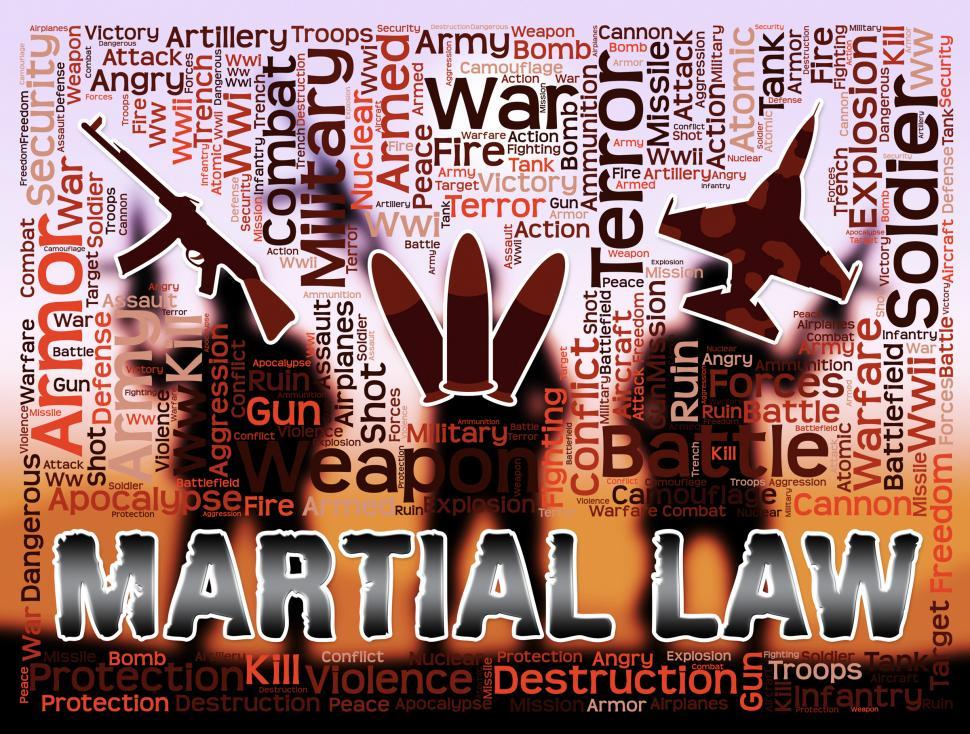
It enables police to arrest without having to demonstrate reasonable suspicion that a crime has been carried out, after which the accused is required to report to the police on a regular basis, sometimes every day. In Mauritius, martial law was declared in during a period of civil unrest in 1968 as an emergency measure, but has never been repealed. Thousands of members of opposition organisations like the Solidarity Trade Union were jailed overnight without any charges, while many restrictions were imposed including a a curfew, postal censorship, telephone lines were disconnected, and citizens were prevented from travelling. In Poland, martial law was imposed in December 1981 and lifted a year and a half later, and introduced to prevent the opposition from gaining more power. However, not all experiences of martial law have been positive.

WHICH OTHER COUNTRIES HAVE IMPOSED IT?Īlthough the UK has never imposed martial law, there are many examples of it being used in history, including by Germany and Japan during the post World War II construction, and in the US following the American Civil War.
#WILL MARTIAL LAW BE DECLARED IN US FREE#
In the same way, the right to free speech could be suspended, allowing authorities to arrest and imprison anyone deemed to be stirring up disorder by making their views known. Government could prevent the press from reporting something which spread anger or panic among the population. With human rights suspended during Martial Law, troops would be able to arrest you simply for finding you suspicious or threatening. Special tribunalsĪnyone caught encouraging or taking part in civil disobedience, disobeying or obstructing instructions would be immediately detained and hauled before a special court or tribunal. Legislation also allows for the destruction of “animal or plant life” belonging to a citizen without the need to compensate them.

Theresa May tells MPs to scrap ski breaks as she races to deliver Brexit on time Confiscation of propertyĭepending on the situation, it is possible the authorities could forcibly remove you from your home in order to acquire the property for the government, confiscate or even destroy it, without having to pay compensation. In order to prevent the grouping of people, blocks on roads and transport hubs would ensure no-one would be able to leave or enter their town or city without express permission.Īnyone deemed to be a danger to public order or safety could be banned from moving outside a designated area.

That may mean schools, shops and businesses could be forced to shut and if a curfew is declared during the day.Ī night-time curfew could mean streets become deserted after a certain time, apart from soldiers who would arrest on the stop anyone caught defying the order. Military-enforced curfews could be declared banning people from moving out of designated areas or even leaving their homes during certain times. Soldiers would be given powers to order people to disperse, or face arrest and imprisonment without trial. It means the government could prohibit opposition group leaders from meeting together, or outlaw a mass protest of people. Brexit: Angela Rayner shreds calls for a second referendum in 'worried' warning


 0 kommentar(er)
0 kommentar(er)
